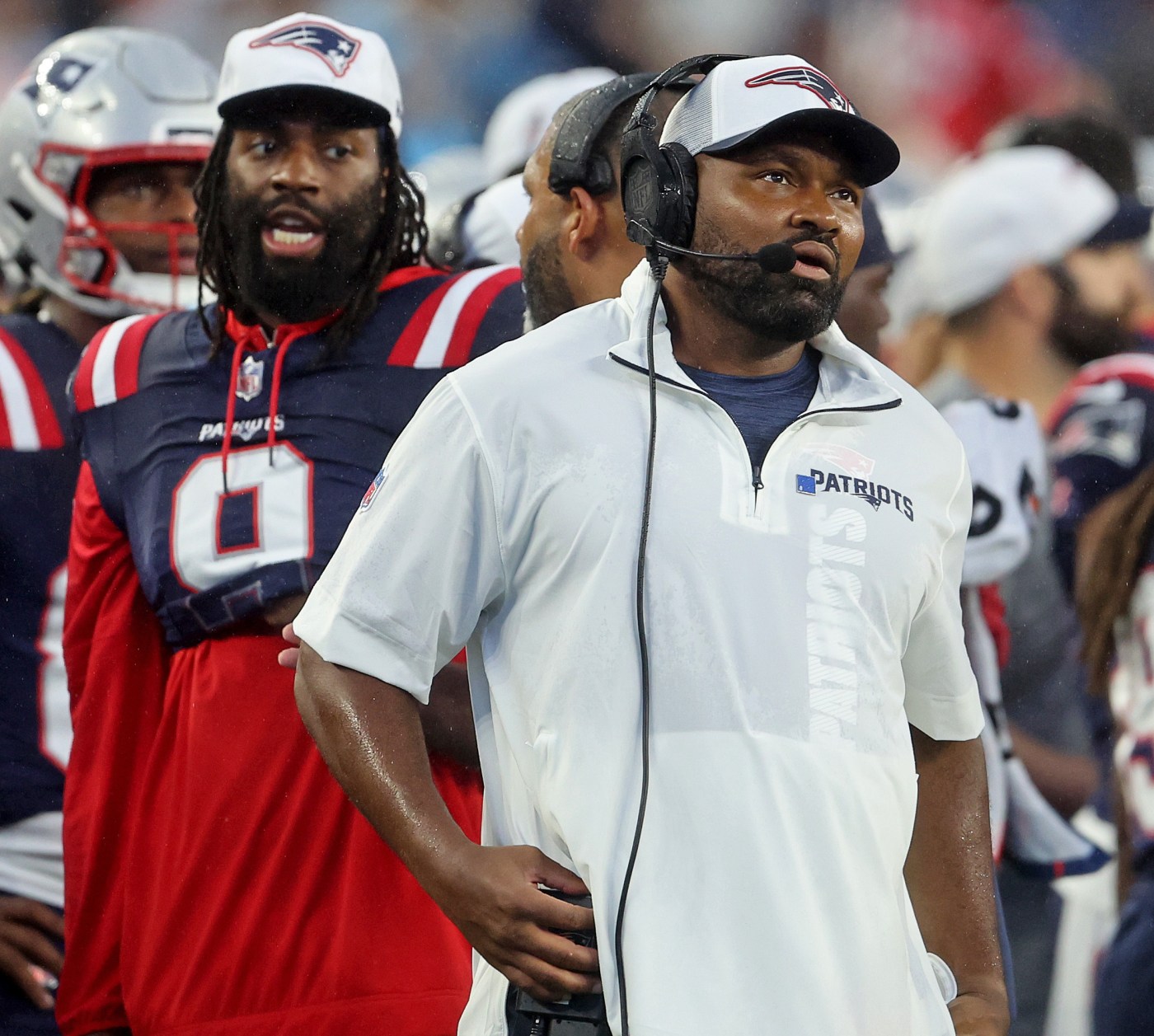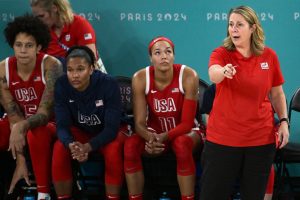
Callahan: The Patriots might as well be punting on 2024
Remember July 23.
On the eve of training camp, Jerod Mayo told me, he told you, he told fans everywhere, what this Patriots’ season is about.
“A successful season, in my eyes, is really about the foundation,” Mayo said. “Have we put together a good foundation of a combination of young and older players to really start competing? It would be great to get up here and say we’re going to win a Super Bowl, but once again, it’s about the process. I tell the guys all the time: it’s about process and progress and moving forward.”
Except by trading Matthew Judon to Atlanta, the Patriots did not move forward Wednesday.
They went backwards as fast as they could in a single transaction.
The Pats offloaded their best player for a 2025 third-round pick. They absorbed a short-term loss for a potential long-term gain, the basic strategy for any rebuilding franchise. And that’s precisely what the Patriots are: a rebuilding team unconcerned with today.
Study Mayo’s words. There’s no mention of the present or winning or the playoffs. It’s all about the future.
The Patriots are treating this season simply as a bridge to the next, when Mayo believes they can “really start” — not winning — but competing again. Which tells you that right now, team leadership believes they can’t compete. Not with this roster, not even with Judon.
So why should you?
The Patriots are telling you to forget the wins and losses. Just hurry up and wait. You can come cheer now, but we’ll see you next season.
That’s when we’re keeping score.
Which, of course, is a massive bummer. But that is the prism through which you should view this trade, and everything every transaction, depth chart and rep moving forward. In making those decisions, the Patriots will always have this question in mind: how does this help us next year?
With Judon, the answer was clear. As a talented veteran entering a contract year, he was of greater value to the front office on the trade market than on the field. Even after his season-ending bicep tear last October, Judon remained a four-time Pro Bowler at a premium position. Front offices pay for those types of players.
Matthew Judon #9 of the New England Patriots during training camp at Gillette Stadium. (Photo By Matt Stone/Boston Herald)
The Patriots simply had to gauge his market, withstand some turbulence this summer and strike the deal.
In their minds, Atlanta’s third-round pick has a higher chance of becoming a foundational piece than Judon did. Not because the Patriots had zero interest in keeping him. The front office reportedly made him an offer, and Judon claimed on a podcast to have extended his own proposal.
But then it got sticky. Not only did Judon sit out OTAs in the spring — which are technically voluntary, but in New England weigh heavily with team leadership — but he made a mess at the first padded practice in training camp. You’ve heard about that day.
On July 29, Judon walked onto the field in street clothes, then sat on a flipped-over trash can, talked with Mayo, left practice and later stormed back to confront personnel chief Eliot Wolf and director of player personnel Matt Groh on the sideline. It was no accident all of this transpired at a time the Patriots had seemingly lost a good deal of leverage in their negotiations.
Judon was still their fiercest pass rusher, and a day earlier it was announced the Pats had their second-best pass rusher, young Christian Barmore, indefinitely to blood clots. Would the front office dare lose them both?
Re-assessing Patriots’ edge defenders after Matthew Judon trade
Turns out, yes. The Patriots waited Judon out. They withstood his hissy fit and mealy-mouthed press conference the week after. Time was, and remains, on their side. The benefit of leading a rebuild.
Now, 16 days later, he’s gone.
Which, on the surface, makes it all the more curious that Mayo and Wolf drew a line at Judon, their best player, after extending 11 others players this offseason. If this is truly a teardown to the studs, why not keep the studs?
Judon entered the league the same year as Hunter Henry. But back in March, Henry re-signed before free agency, receiving the only clear-cut player-friendly deal the Patriots signed this spring.
Why did they chose him or Kendrick Bourne or Mike Onwenu or Jabrill Peppers? What made them so special?
Related Articles
Re-assessing Patriots’ edge defenders after Matthew Judon trade
Source: Patriots trade Matthew Judon to Atlanta for 2025 draft pick
Patriots extra points: Christian Barmore makes first appearance since blood clots diagnosis
Patriots-Eagles joint practice: Drake Maye shines early, O-line exposed and Pats defense stands tall
Patriots heeded Jerod Mayo’s warning about fighting in Eagles joint practice
There are, at least, three major differences to note here:
No. 1: All of them are younger than Judon, and signed at or below-market deals.
No. 2: Most of them played ball in-house. Henry was a captain last year, attended OTAs in the spring and was named an offseason award winner, as was Peppers.
No. 3: If and when they see the field, players like Henry, Bourne and Onwenu will all help fertilize Drake Maye’s development. Maye represents the future, and that’s what matters to the Patriots.
That is, of course, if Maye ever sees the field; where the coaching staff is learning they can’t protect him. The Eagles proved as much in Tuesday’s joint practice, when Maye took several sacks as Judon failed to record a single one working on the opposite field. Instead, during full-team drills, he was twice spotted sprinting down the sideline covering running backs on wheel routes to no avail.
Turns out, he should have kept on running.

